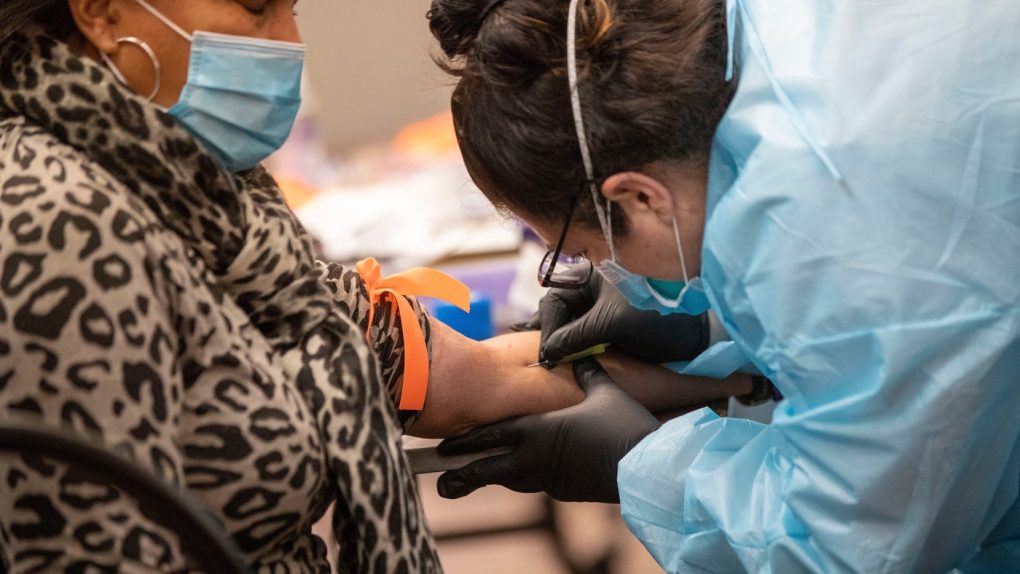- The U.S. Centers for Disease Control and Prevention (CDC) will conduct an extensive COVID-19 study to determine the scope of the infection and the strength of the immune response to the novel coronavirus.
- The nationwide study will analyze blood samples from up to 325,000 donors over 18 months.
- The results would detail the evolution of COVID-19 immunity over time, which is crucial data that officials need to develop better coronavirus containment and treatment strategies.
- Visit BGR’s homepage for more stories.
Containing and treating a highly infectious disease like COVID-19 isn’t enough. We also need to learn what sort of immunity we can expect after surviving the infection. The strength of the immune response is also essential data for the vaccine candidates that will be chosen for immunization campaigns.
Ideally, COVID-19 immunity will be long-lasting, which would make reinfection virtually impossible. Also, long-lasting immunity combined with widespread vaccination would deliver the herd immunity that we need much faster. In a best-case scenario, long-term resistance would help us eradicate the virus altogether.
Dr. Anthony Fauci already warned that eliminating the new coronavirus is highly unlikely, however. Similarly, the WHO said that the virus might never go away. The immunity question still stands, as we need to know precisely how long the protection against reinfection lasts. The CDC plans to run a massive antibody study in the US in the next 18 months to track the disease, and the hope is that we will get the answer we want.
The immune system creates antibodies that are unique to each pathogen. They travel the body and can prevent another infection. That’s why plasma transfusions from COVID-19 survivors can help people with deficient immune systems who can’t fight the illness on their own. Antibody-based drugs are in development, and they could both treat COVID-19 patients and provide limited immunity to people who have not contracted the disease. Vaccines work the same way, but unlike antibody drugs, they actually teach the immune system to create its own antibodies.
The CDC wants to study as many as 325,000 volunteers nationwide, Reuters notes, to track how the new virus has been spreading.
The study will start in June or July, testing blood from 1,000 donors in 25 metro areas each month for 12 months. The researchers will then test blood from another 25,000 donors after 18 months. Initially, COVID-19 survivors from New York, Seattle, the San Francisco Bay Area, Los Angeles, Boston, and Minneapolis will be able to donate blood. The next phase will include Miami, Atlanta, New Orleans, Dallas, St. Louis, Chicago, Denver, and others.
Vitalant Research Institute will lead a preliminary version of the study, funded by the National Heart, Lung and Blood Institute and the National Institute of Allergy and Infectious Diseases, testing 36,000 samples. The blood comes from “regular, altruistic people” who come to donate blood, the director of the institute, Dr. Michael Busch, told Reuters.
The CDC-funded portion will be formally announced this week and will expand the scope and time frame of the study. The CDC aims to look at how the antibodies evolve over time, CDC spokeswoman Kristen Nordlund said. Vitalant will also lead the broader effort.
Nordlund said that researchers aim to publish results regularly, which should give officials insight into how the disease has been spreading and how strong the immune response has been in those patients.
Similar serology studies have been performed at local levels. A New York study that included 3,000 subjects revealed that 20% of the participants had antibodies, while a Boston antibody study found that 10% of the 750 people tested had COVID-19 antibodies. Spain ran a much larger study, revealing that as much as 5% of the population may have contracted the disease, which is 10 times the number of confirmed cases.








